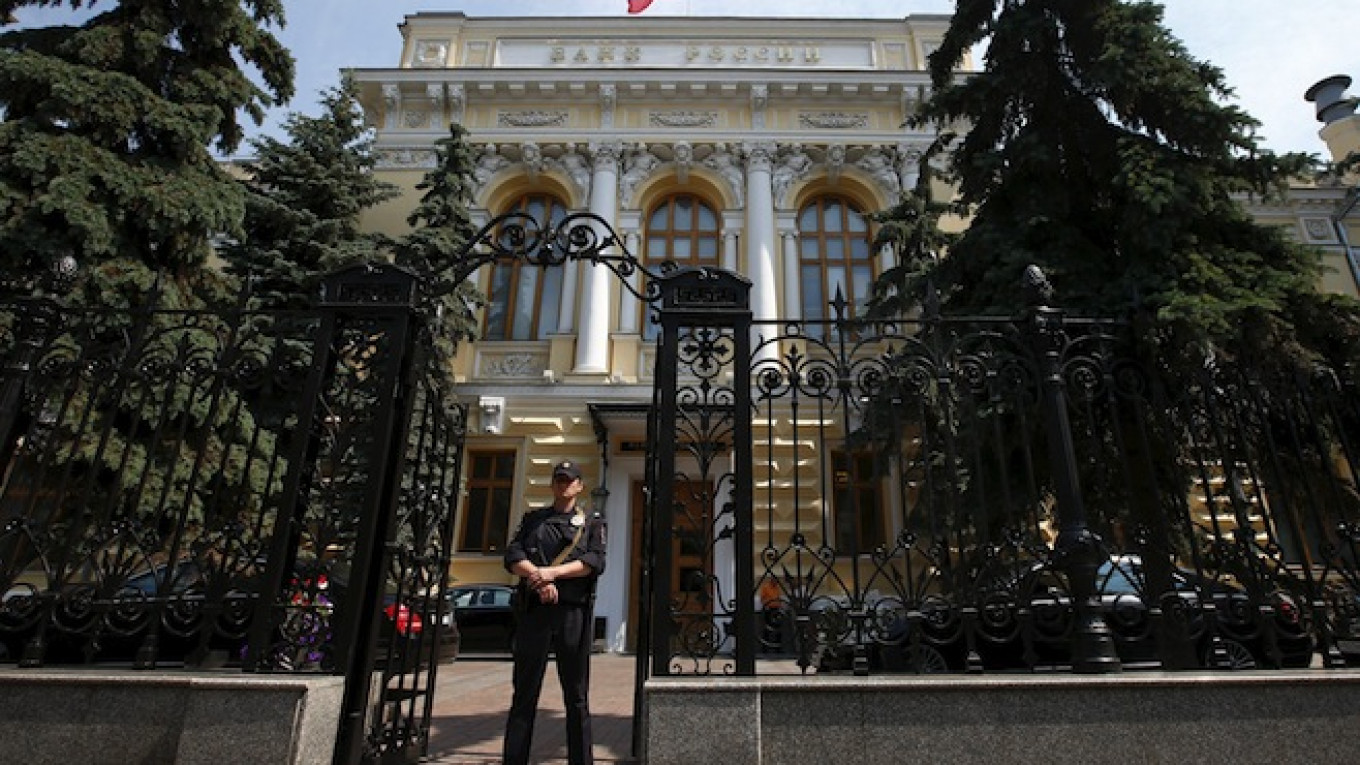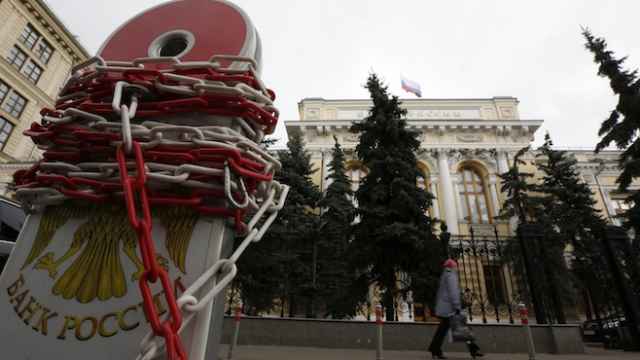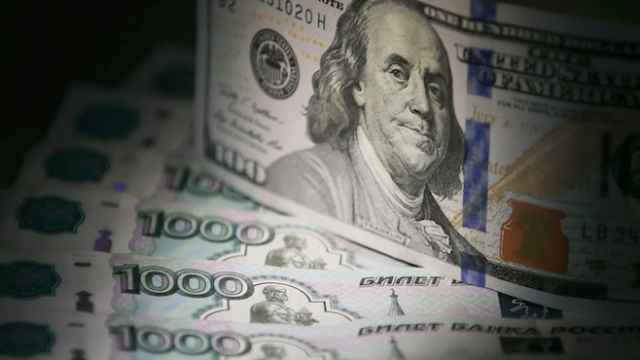The Russian Central Bank cut its main lending rate further on Monday, in line with market expectations, but said the pace of policy easing could slow in the coming months because of risks to inflation.
The bank lowered its one-week minimum auction repo rate to 11.5 percent from 12.5 percent, extending an easing cycle that began in January to unwind an emergency 6.5 percentage point rate hike late last year.
It has come under pressure to soften monetary policy as inflation has slowed and economic data has worsened. Russia's economy is feeling the impact of Western sanctions over the crisis in Ukraine and a fall in global oil prices.
Russia's economic development minister said Monday's cut, which was smaller than at other policy meetings this year, should have been bigger, while its finance minister said he hoped the cut would not be the last.
Bank Governor Elvira Nabiullina rebuffed such criticism, saying faster policy easing would be risky.
"We often hear calls for the Bank of Russia to take more aggressive actions in reducing the key rate. However, the attempt to achieve quick results may only destabilize the situation, trigger economic imbalances and their accumulation," Nabiullina told journalists after the rate decision.
Nabiullina said the Russian economy had not yet passed its worst point and that annual economic growth would only resume around the middle of next year.
The bank said it was ready to continue cutting the key rate but that "the potential of monetary policy easing will be limited by inflation risks in the next few months."
The bank improved its 2015 gross domestic product forecast to a contraction of 3.2 percent from a 3.5 to 4 percent decline seen previously and said it now saw inflation ending the year at around 11 percent, lower than it had earlier predicted.
The ruble strengthened slightly after the rate decision.
Slower Easing
Analysts described the wording of the bank's statement as less dovish than at its previous meeting in April.
"We still expect the Central Bank to continue to cut rates over the remainder of the year, but they may do so in smaller steps," said William Jackson at Capital Economics in London.
Nabiullina said she was not ready to give more guidance on the size and pace of future rate cuts.
"Everything will depend on how the situation develops, there are many uncertainties," she said.
Inflation eased from a peak of 16.9 percent in March to 15.8 percent in May, but a recent bout of ruble weakness and potential utility tariff hikes could prevent inflation from declining much further soon.
That ruble weakness was prompted in part by the Central Bank starting to purchase foreign exchange from mid-May to replenish its reserves.
Nabiullina said the bank's policy of increasing the reserves from their current level of $362 billion to around $500 billion over the next few years was not an aim but a "reference point."
A Message from The Moscow Times:
Dear readers,
We are facing unprecedented challenges. Russia's Prosecutor General's Office has designated The Moscow Times as an "undesirable" organization, criminalizing our work and putting our staff at risk of prosecution. This follows our earlier unjust labeling as a "foreign agent."
These actions are direct attempts to silence independent journalism in Russia. The authorities claim our work "discredits the decisions of the Russian leadership." We see things differently: we strive to provide accurate, unbiased reporting on Russia.
We, the journalists of The Moscow Times, refuse to be silenced. But to continue our work, we need your help.
Your support, no matter how small, makes a world of difference. If you can, please support us monthly starting from just $2. It's quick to set up, and every contribution makes a significant impact.
By supporting The Moscow Times, you're defending open, independent journalism in the face of repression. Thank you for standing with us.
Remind me later.






